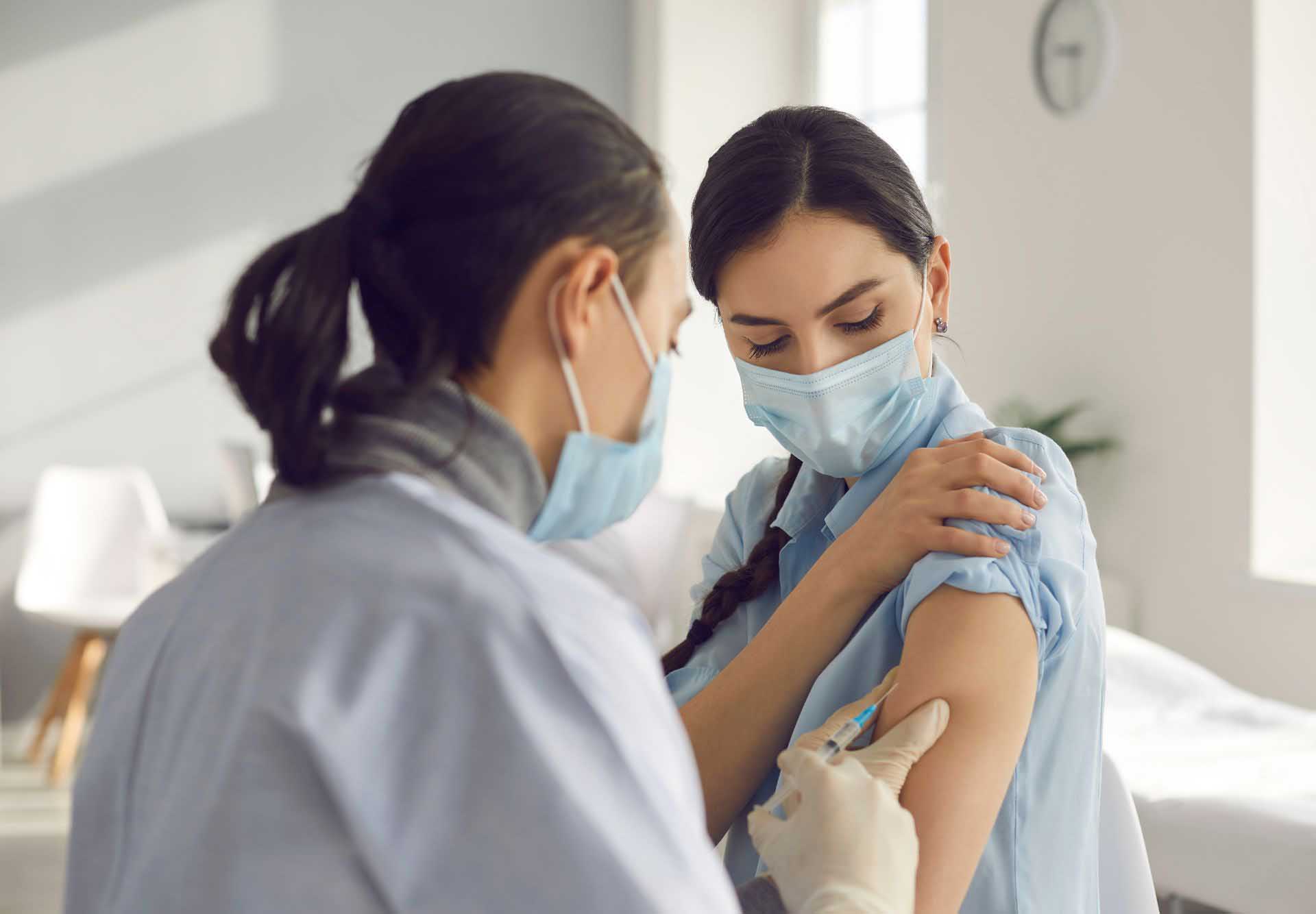While introducing the COVID-19 vaccine is a breakthrough in the fight against the coronavirus, it presents challenges for some populations. Due to shifting official guidance and false information spread via social media, some people of childbearing age are worried if the vaccination against Covid affects fertility in women.
The “chief of Pfizer research,” so the story goes, referred to the Pfizer vaccine as “female sterilization” in November of 2020. This has been proven false. On the other hand, it planted the germ of doubt in the minds of many.

The most widely accepted explanation for why COVID-19 vaccine may reduce fertility is that the body’s immune response would trigger an attack on the placenta, targeting a specific protein there. None of the data we gathered pointed to this reaction happening.
Coronavirus infection and vaccination have not prevented pregnancy in certain women. Women who were vaccinated and later became pregnant while taking part in vaccine research studies are included. In addition, research has found no correlation between the COVID-19 immunization and reduced fertility.
Reliable References

For women in a state of panic who are looking for answers, there are two factors to take into account. The first step is to locate a person or organization they can confide in and have a fruitful, open, vulnerable, two-way conversation with; the second and more crucial, step is to ensure that this trusted confidante is also an expert in the field.
This second consideration is vital yet frequently disregarded. While many women have reliable sources, they may lack the specialized expertise needed to assess the merits of the advanced novel scientific hypotheses.

That is to say, while your well-meaning friend or family member may want what’s best for you, they may not have the informational chops to give you an accurate account of how the COVID-19 vaccination functions. It’s unfortunate that many women don’t believe they regularly interact with someone who can provide for both of these needs.
When looking for someone you can trust, taking the initiative to engage your support system is essential. Spreading the word about an article written by a respected authority on the subject is a simple and effective method.

Many people are now consulting a reliable social media source for advice. Others should seek out a one-on-one conversation partner, preferably someone they already know and trust on a deep level, such as a close friend or acquaintance of a friend. These are personal choices that each woman must make for herself.
Fertility Studies Involving the COVID-19 Vaccine
Despite millions of people being exposed to COVID-19, no cases of infertility have been reported among women who have overcome the virus. Contrary to what you may think, women have conceived after being infected with and vaccinated against coronavirus.

Women who were vaccinated and later became pregnant while taking part in vaccine research studies are included. Since vaccine ingredients only constitute a minuscule fraction of the virus, it is extremely improbable that they would have any effect on fertility.
According to studies, neither Pfizer nor Moderna and Janssen have observed any adverse effects on fertility following vaccination.

The world of Twitter, Facebook, etc., can both bring accurate information and reassurance if you’re following the appropriate specialists and produce confusion and panic if you’re not. You can find folks stating all sorts of terrible things about vaccines if you search around on social media.
Tens of millions of Americans are vaccinated. Any adverse event after immunization is reported to VAERS, regardless of whether it is vaccine-related.

The most significant issue is that non-pregnant women often experience excessive levels of worry and stress about being vaccinated. Women’s mental health suffers greatly as a result, far more so than would be expected from an abundance of caution.
The best approach to start pregnancy safely, according to experts, is to get vaccinated before trying to have a baby. There is evidence that pregnant women have a higher chance of contracting COVID-19 than the general population.

Several major medical groups agree that pregnant women and those trying to conceive should be given the COVID-19 vaccine. These groups include the American Society for Reproductive Medicine, the American College of Obstetricians and Gynecologists, the Centers for Disease Control and Prevention, and the Society for Maternal Fetal Medicine.
Using a shared-decision making framework, every woman should be able to discuss this option with her doctor and make her own medical decision.

Since the release of the COVID-19 vaccines in late 2020, no major cautionary statement has been issued by any academic body. Your healthcare physician or obstetrician/gynecologist should be consulted if you continue to experience worries.
The concern is understandable in light of the widespread dissemination of data and disinformation via social media; nonetheless, your physician should be able to allay your fears and reassure you of the vaccine’s safety and efficacy.
Meaningful articles you might like: Why Fertility Testing is Important For Men, The Covid-19 Vaccine and Male Fertility – What We Know, Does COVID-19 Vaccine Affect Children’s Fertility?

